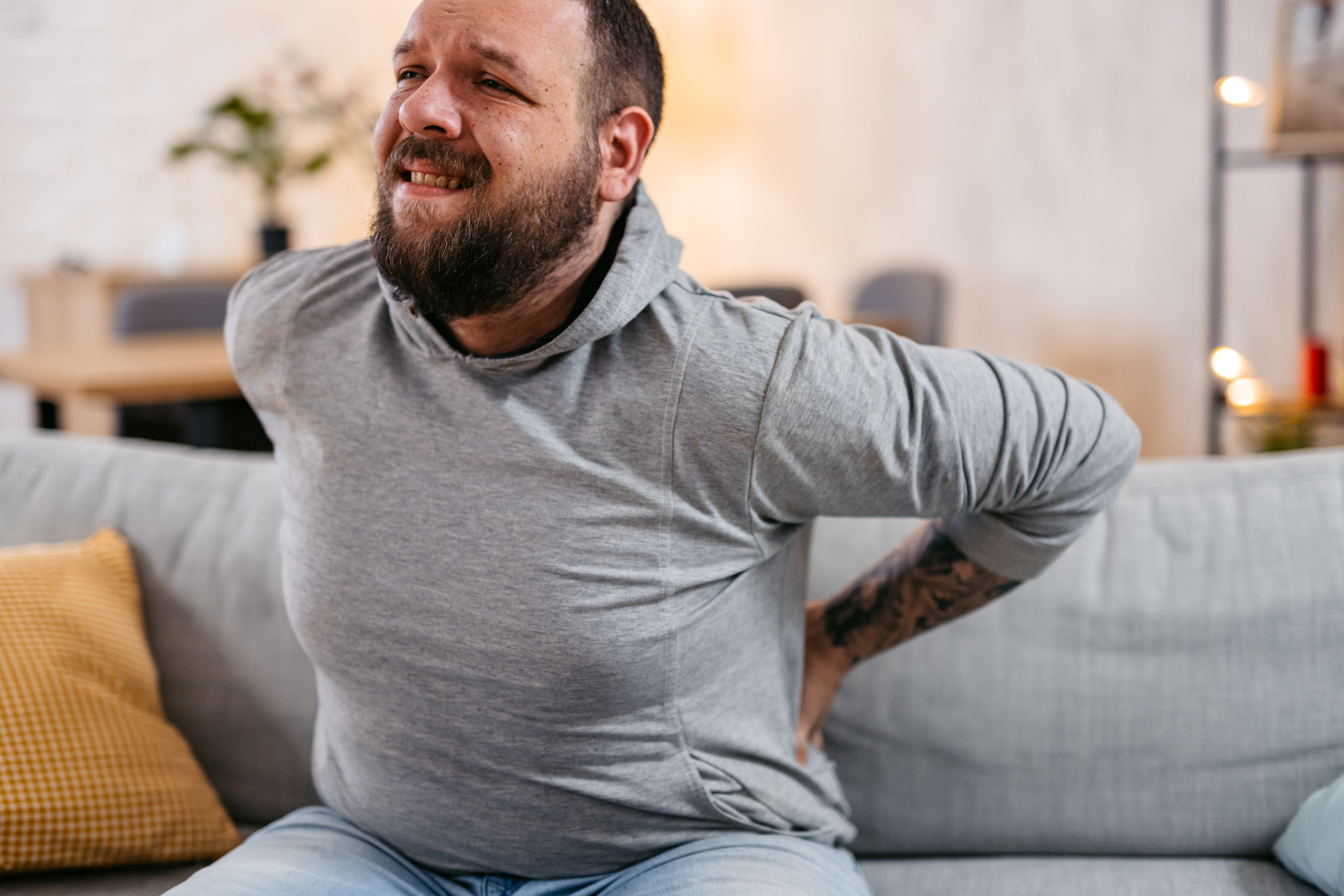Get Easy Health Digest™ in your inbox and don’t miss a thing when you subscribe today. Plus, get the free bonus report, Mother Nature’s Tips, Tricks and Remedies for Cholesterol, Blood Pressure & Blood Sugar as my way of saying welcome to the community!
Is ‘dead butt syndrome’ behind your low back and knee pain?

This one is going to sound a little silly, but the chronic pain it can cause is anything but.
Here’s a stumper for you: of all the muscles in your body, which one can cause back and lower knee problems, including sciatica and arthritis?
Give up? It’s your butt muscle – your gluteus maximus, in more technical terms.
If you sit all day at your desk or elsewhere, you’re probably already experiencing some of the effects of what doctors are now calling “dead butt syndrome.”
It’s no joke. Here’s everything you need to know.
What is gluteal amnesia?
When I get up from my desk after a day of writing, I often feel a little stiff. That’s natural, I figure. My hips and lower back need stretching.
But now I know that I may be setting myself up for a potentially debilitating condition called gluteal amnesia, or “dead butt syndrome.”
Dead butt syndrome happens when the muscles in your rear become weak from inactivity – so weak that it seems like they’ve forgotten how to function. This means they may be slow to activate, or not activate at all.
You won’t feel pins and needles or anything like that; it’s not like a compressed nerve.
But the possible effects of this condition on the rest of your body are huge…
Nothing funny about these dangers
Dr. Jane Konidis is a specialist in physical medicine and rehabilitation at the Mayo Clinic. Here’s what she says:
“The name sounds silly, but the side effects are serious. The gluteus maximus is one of the strongest muscles in the body and biggest shock absorber. If it’s not working properly, it can cause a domino chain of issues, from hamstring tears and sciatica to shin splints and arthritis in the knees.”
Your glutes consist of three muscles on the outside and back of your hips. Together, they act as a base for the spine, keeping the pelvis and core stable.
When you take a step forward, the glutes activate first. However, repeated eight-hour desk days can cause a delay in the neurons that signal them to activate. Over time, this causes the glutes to get weaker which has been linked to lower back and knee pain.
How to prevent dead butt syndrome
As you might expect, the only way to keep this from happening to your body is to move.
This doesn’t mean you have to start engaging in strenuous exercise. But the right exercise is crucial to keeping those glutes alive.
Here are a few things you can do:
Set an alarm. Stand up every 30 to 50 minutes and gently tap your butt cheeks with your fingertips. “That little bit of stimulation reminds the brain that those muscles are there,” says Dr. Konidis.
Work your glutes. Not your whole body, just your butt muscles. Exercises that target this area include:
- Marching in place
- Hip circles
- Squats
- Clamshells
- Hip thrusts
- Side planks
- Single-leg glute bridges
I suggest you put together a simple routine that involves three repetitions of two or three of these that you can do whenever you rise from your desk, as well as at other times.
Finally, if you walk or run regularly, that’s great, but don’t assume that this means your glutes are strong, according to Dr. Jordan Metzl, a sports medicine physician at Hospital for Special Surgery in New York City.
Adding some squats or lunges to your walking or running routine will keep your glutes activated and save you from the agony of back and knee pain.
Not much work for a big payoff!
Editor’s note: Are you feeling unusually tired? You may think this is normal aging, but the problem could be your master hormone. When it’s not working, your risk of age-related diseases skyrockets. To reset what many call “the trigger for all disease” and live better, longer, click here to discover The Insulin Factor: How to Repair Your Body’s Master Controller and Conquer Chronic Disease!
Sources:
Sitting All Day Can Cause Dead Butt Syndrome — NY Times














